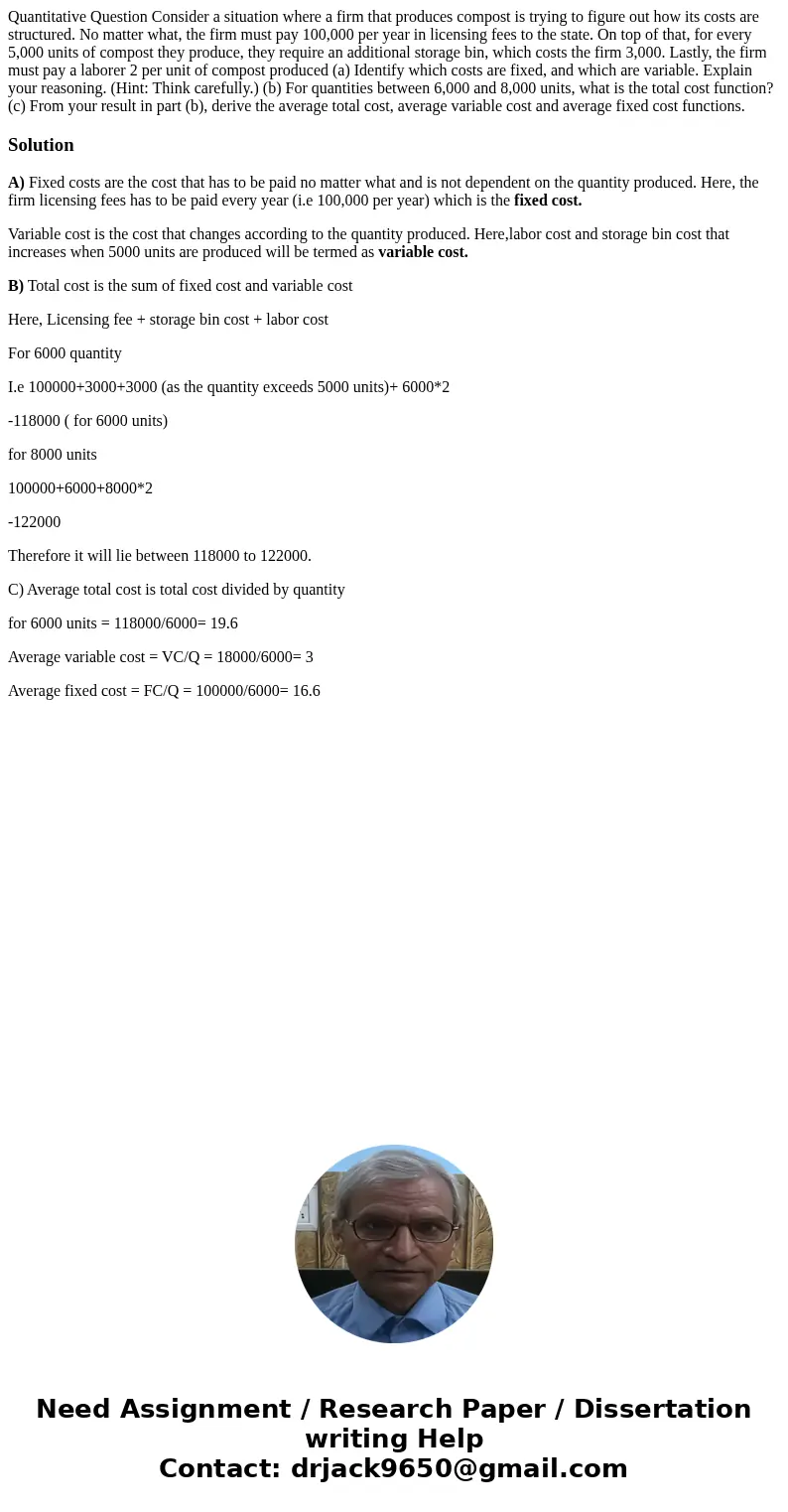Quantitative Question Consider a situation where a firm that
Solution
A) Fixed costs are the cost that has to be paid no matter what and is not dependent on the quantity produced. Here, the firm licensing fees has to be paid every year (i.e 100,000 per year) which is the fixed cost.
Variable cost is the cost that changes according to the quantity produced. Here,labor cost and storage bin cost that increases when 5000 units are produced will be termed as variable cost.
B) Total cost is the sum of fixed cost and variable cost
Here, Licensing fee + storage bin cost + labor cost
For 6000 quantity
I.e 100000+3000+3000 (as the quantity exceeds 5000 units)+ 6000*2
-118000 ( for 6000 units)
for 8000 units
100000+6000+8000*2
-122000
Therefore it will lie between 118000 to 122000.
C) Average total cost is total cost divided by quantity
for 6000 units = 118000/6000= 19.6
Average variable cost = VC/Q = 18000/6000= 3
Average fixed cost = FC/Q = 100000/6000= 16.6

 Homework Sourse
Homework Sourse